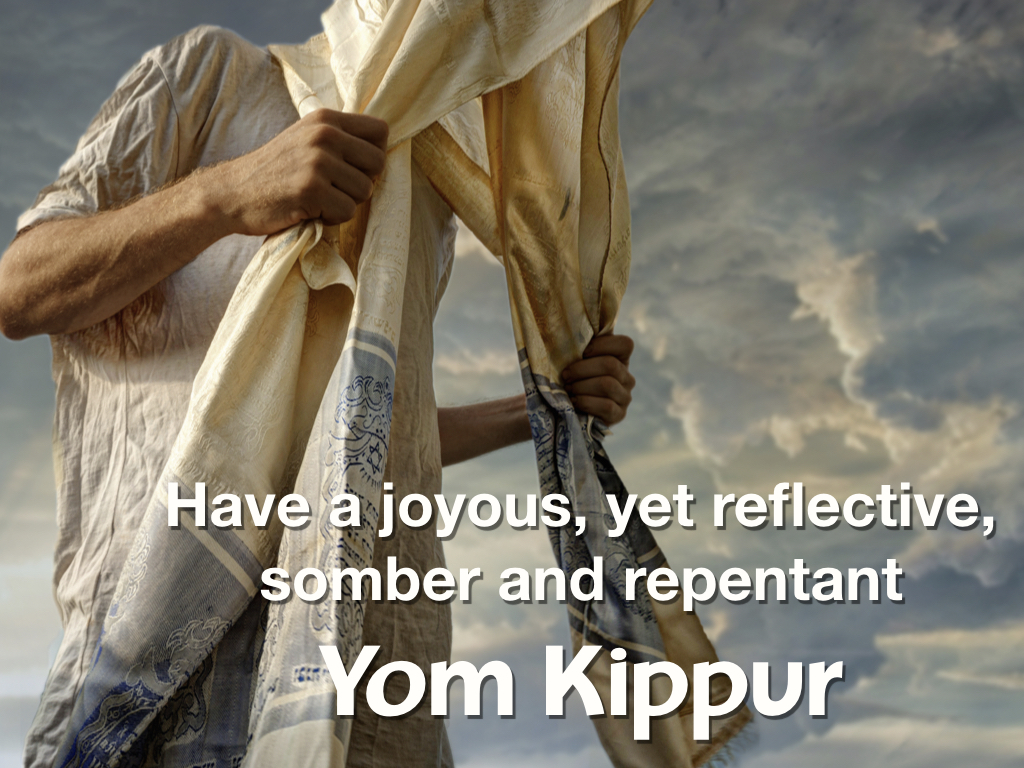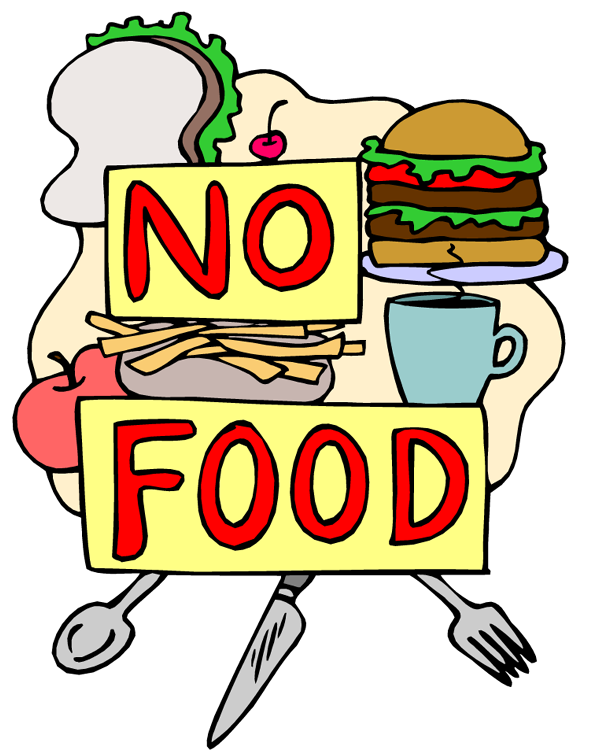Tag Archives: Day of Atonement
Happy Yom Kippur!

May the resources on this blog that are available free to you be a blessing to you on this most important high holy day of YHVH Elohim!
https://hoshanarabbah.org/blog/page/2/?s=Yom+Kippur&submit=Search
Passing the End Times Test—Losing All For Yeshua to Gain the Kingdom of Heaven

This is an unpopular subject with men, but a popular one with YHVH Elohim!
FOR SPIRITUALLY MATURE READERS ONLY WHO DON’T WANT THEIR EARS TICKLED AND ARE SERIOUS ABOUT FOLLOWING YESHUA!
Our souls need afflicting. This is a tough, unpopular message that few want to think about, much less discuss or preach about. Afflicting the soul or dying to self is what the Day of Atonement or Yom Kippur is all about. In fact, this is what our entire life is all about. It’s about dying to the world and the devil, but most importantly, dying to self. If we want to see Yeshua, we must talk about it, and then learn to do it!
Dying to self is the lifelong struggle that Paul, the mighty apostle of Yeshua and the writer of a good portion of the New Testament discusses in Romans chapter seven that each of us faces every day.
For we know that the law is spiritual, but I am carnal, sold under sin. For what I am doing, I do not understand. For what I will to do, that I do not practice; but what I hate, that I do. If, then, I do what I will not to do, I agree with the law that it is good. But now, it is no longer I who do it, but sin that dwells in me. For I know that in me (that is, in my flesh) nothing good dwells; for to will is present with me, but how to perform what is good I do not find. For the good that I will to do, I do not do; but the evil I will not to do, that I practice. Now if I do what I will not to do, it is no longer I who do it, but sin that dwells in me. I find then a law, that evil is present with me, the one who wills to do good. For I delight in the law of Elohim according to the inward man. But I see another law in my members, warring against the law of my mind, and bringing me into captivity to the law of sin which is in my members. O wretched man that I am! Who will deliver me from this body of death? (Rom 7:14–24)
Why must our souls be afflicted? So they can be brought under the power of the Spirit of Elohim, and so that we think and act like Yeshua, and eventually be transformed into the people that he wants to spend eternity with. Becoming like Yeshua is ultimate purpose of life! When a person’s main goal in life is to make money, or to gain material possessions, to achieve fame, power, knowledge or even to become happily married and to raise a family, they are falling way short of their full and destiny as potential children of the Creator, Most High YHVH Elohim. That’s why Yeshua asks the question, “For what profit is it to a man if he gains the whole world, and loses his own soul? Or what will a man give in exchange for his soul?” (Mat 16:26). That is why YHVH Elohim, our Father in heaven sent Yeshua his Son to this earth. It was not only redeem us from the death grip of sin, but to show us how to live—to show us the way to our Heavenly Father. For this to occur, we must overcome the world, the flesh and devil every day of our lives and live as Yeshua did. The Word of Elohim tells that without holiness, spiritual purity or sinlessness, no one will see Elohim (Heb 12:14). These are words to live by and to guide us in all that we do, say and think. This means becoming a living sacrifice for Yeshua or dying to self.
I beseech you therefore, brethren, by the mercies of Elohim, that you present your bodies a living sacrifice, holy, acceptable to Elohim, which is your reasonable service. And do not be conformed to this world, but be transformed by the renewing of your mind, that you may prove what is that good and acceptable and perfect will of Elohim. (Rom 12:1–2)
Dying to self and being overcomers is necessary if we are to be the chaste bride ready to meet Yeshua our coming King and Bridegroom—a bride that will be one or echad with him for eternity. We must die to everything else that will get in they way of our love for him.
Who shall separate us from the love of the Messiah? Shall tribulation, or distress, or persecution, or famine, or nakedness, or peril, or sword? As it is written: “FOR YOUR SAKE WE ARE KILLED ALL DAY LONG; WE ARE ACCOUNTED AS SHEEP FOR THE SLAUGHTER.” Yet in all these things we are more than conquerors through Him who loved us. For I am persuaded that neither death nor life, nor angels nor principalities nor powers, nor things present nor things to come, nor height nor depth, nor any other created thing, shall be able to separate us from the love of Elohim which is in the Messiah Yeshua our Lord. (Rom 8:35–39)
One aspect of becoming like Yeshua by dying to self and overcoming this world and the flesh may well involve our rethinking or even changing our entire paradigmatic perspective concerning our current lifestyles. What do I mean by this? Let me explain.

Most of us have spent a lifetime constructing neat little nests all around us to shield ourselves from the harsh realities of life. Almost everything we do, everything we buy, everything we construct, the relationships we nurture, and the material possessions that we collect is about self preservation and comfort. To this end, we all have furnished the nests of our lives in a way to protect ourselves from the harsh reality of death. Then beyond this, we have embellished our nests to look good to the outside world, and to feel good about ourselves, and live comfortable and self-gratifying lifestyles, while forgetting that it could all be gone in an instant, or that we could die at anytime, and then what?
For what profit is it to a man if he gains the whole world, and loses his own soul? Or what will a man give in exchange for his soul? (Mat 16:26)
Then He spoke a parable to them, saying: “The ground of a certain rich man yielded plentifully. And he thought within himself, saying, ‘What shall I do, since I have no room to store my crops?’ So he said, ‘I will do this: I will pull down my barns and build greater, and there I will store all my crops and my goods. And I will say to my soul, “Soul, you have many goods laid up for many years; take your ease; eat, drink, and be merry. ‘ But Elohim said to him, ‘Fool! This night your soul will be required of you; then whose will those things be which you have provided?’ So is he who lays up treasure for himself, and is not rich toward Elohim.” (Luke 12:16–21)
Sadly, many of us placed more of our time and energy attempting to fulfill our physical expectations instead following Yeshua’s instructions to his disciples to “seek first the kingdom of Elohim and His righteousness, and all these things shall be added to you,” (Matt 6:33). As a result, in many cases, our expectations have become idols that, to one degree or another, are keeping us from walking out the Truth of YHVH, and the higher life of a disciple of Messiah by walking as he walked. In many respects, our affluent and free Western lifestyle has not helped us in achieving the higher spiritual walks that Yeshua requires of his disciples. This is because we have been blessed with civil liberties, freedoms and luxuries never before experienced by any previous human society, and this has not helped us to grow stronger spiritually. Instead, in many cases, and as a whole, we have grown spiritually weak, lukewarm and careless, anemic, somewhat apathetic toward our faith. For many of us our passion for Yeshua and the Truth of Elohim has waned if not all but evaporated. YHVH warned ancient Israel and the Laodicean church over these same issues.
For the YHVH’s portion is His people; Jacob is the place of His inheritance. He found him in a desert land And in the wasteland, a howling wilderness; He encircled him, He instructed him, He kept him as the apple of His eye. As an eagle stirs up its nest, Hovers over its young, spreading out its wings, taking them up, carrying them on its wings, so YHVH alone led him, And there was no foreign god with him. He made him ride in the heights of the earth, That he might eat the produce of the fields; He made him draw honey from the rock, and oil from the flinty rock; curds from the cattle, and milk of the flock, with fat of lambs; and rams of the breed of Bashan, and goats, with the choicest wheat; and you drank wine, the blood of the grapes. But Jeshurun grew fat and kicked; you grew fat, you grew thick, you are obese! Then he forsook Elohim who made him, and scornfully esteemed the Rock of his salvation. They provoked Him to jealousy with foreign gods; with abominations they provoked Him to anger. They sacrificed to demons, not to Elohim, to gods they did not know, to new gods, new arrivals that your fathers did not fear. Of the Rock who begot you, you are unmindful, and have forgotten the Elohim who fathered you. (Deut 32:9–18)
For Jerusalem stumbled, And Judah is fallen, Because their tongue and their doings Are against YHVH, To provoke the eyes of His glory. The look on their countenance witnesses against them, And they declare their sin as Sodom; They do not hide it. Woe to their soul! For they have brought evil upon themselves. Say to the righteous that it shall be well with them, For they shall eat the fruit of their doings. Woe to the wicked! It shall be ill with him, For the reward of his hands shall be given him. As for My people, children are their oppressors, And women rule over them. O My people! Those who lead you cause you to err, And destroy the way of your paths.” YHVH stands up to plead, And stands to judge the people. YHVH will enter into judgment With the elders of His people And His princes: “For you have eaten up the vineyard; The plunder of the poor is in your houses. What do you mean by crushing My people And grinding the faces of the poor?” Says the Lord GOD of hosts. Moreover YHVH says: “Because the daughters of Zion are haughty, And walk with outstretched necks And wanton eyes, Walking and mincing as they go, Making a jingling with their feet. Therefore the Lord will strike with a scab The crown of the head of the daughters of Zion, And YHVH will uncover their secret parts. In that day the Lord will take away the finery: The jingling anklets, the scarves, and the crescents; the pendants, the bracelets, and the veils; the headdresses, the leg ornaments, and the headbands; The perfume boxes, the charms, and the rings; The nose jewels, the festal apparel, and the mantles; The outer garments, the purses, and the mirrors; the fine linen, the turbans, and the robes. And so it shall be: Instead of a sweet smell there will be a stench; Instead of a sash, a rope; instead of well-set hair, baldness; instead of a rich robe, a girding of sackcloth; And branding instead of beauty. (Isa 3:8–24)
“And to the angel of the church of the Laodiceans write, ‘These things says the Amen, the Faithful and True Witness, the Beginning of the creation of Elohim: I know your works, that you are neither cold nor hot. I could wish you were cold or hot. So then, because you are lukewarm, and neither cold nor hot, I will vomit you out of My mouth. Because you say, ‘I am rich, have become wealthy, and have need of nothing’—and do not know that you are wretched, miserable, poor, blind, and naked—I counsel you to buy from Me gold refined in the fire, that you may be rich; and white garments, that you may be clothed, that the shame of your nakedness may not be revealed; and anoint your eyes with eye salve, that you may see. As many as I love, I rebuke and chasten. Therefore be zealous and repent. Behold, I stand at the door and knock. If anyone hears My voice and opens the door, I will come in to him and dine with him, and he with Me. To him who overcomes I will grant to sit with Me on My throne, as I also overcame and sat down with My Father on His throne. He who has an ear, let him hear what the Spirit says to the churches. (Rev 3:14–22)
What are some expectations that our Western lifestyle has automatically provided us such that we automatically expect them and if deprived of them, we would be scandalized, inconvenienced, shaken physically and spiritually? In America, for example, they include…

- The American dream (a house, an automobile or two, vacations, a cushy retirement beginning at a young age, having a few toys, e.g. a boat, travel trailer, a second home, etc.)
- Freedom of speech.
- Freedom of religion and the right to practice it freely.
- Freedom to peaceably assemble.
- Freedom from government intrusion and tyranny.
- Freedom to maintain personal privacy.
- The right to travel freely and unmolested on our way whenever and wherever we want to go
- A just judicial system that is impartial and not a respecter of persons where one is innocent until proven guilty.
- No taxation without representation.
- Freedom to defend oneself with firearms if necessary.
- Freedom to live privately without government surveillance and intrusion.
- The expectation that we can buy whatever we want whenever we want with no supply shortages including the basic necessities of life.
- The knowledge that our national constitution guarantees and protects our basic civil rights.
- The belief that our politicians represent us.
- Freedom to raise our children how we want and that parents have ultimate authority over their minor children.
- Freedom to live on our own land and to do what we want on it as long as it doesn’t hurt someone else or violate their freedoms.
- The expectation to live a safe, secure, settle, undisturbed life free of worry and stress, discomfort, insecurity and privation of any kind.
Why Is Fasting or “Afflicting the Soul” So Important?

Afflicting the soul is the path to spiritual greatness and many blessings and rewards!
The Bible teaches us that fasting or “afflicting the soul” is the key to intimacy with YHVH Elohim and to receiving spiritual power. This is something that YHVH commands his children to do at least once a year (on the high holy day of Yom Kippur or the Day of Atonement), and more often if one is serious about their spiritual walk.
But how is it possible that a simple activity such as going without food for a period of time could be so crucial to spiritual transcendence? In this brief study, we will find the surprising answer this important question.
As we study this issue, let’s keep in mind that the ways of YHVH are often contrary to the ways of man. Yeshua taught us that to live we must die to ourselves; to become rich we must be givers; that the way down is the way up, that to be a great leader, we must become a servant; and in the case of afflicting the soul, to feed our spirit man we must sometimes starve our flesh and soul (that is, our mind, will and emotions) man.
What Is Fasting?
The Day of Atonement or Yom Kippur is a day to afflict your souls (Lev 16:29 and 23:27) or literally “to humble ourselves.” The word afflict is the Hebrew word anah meaning “to oppress with the idea of humility or meekness in mind coupled with the idea of a suffering life rather than with one of worldly happiness and abundance” (Theological Wordbook of the Old Testament, vol. 2, p. 682). The Jewish Publications Study Bible (or JPS) translates the phrase afflict yourselves as “you shall practice self denial.”Although this verse does not specifically mention fasting as a component of Yom Kippur, Jewish understanding on the term afflict your souls is firm that this refers to fasting (The ArtScroll Tanach Series Vayikra/Leviticus Commentary, p. 404). With this view in mind, the pre-eminent nineteenth-century Orthodox Jewish sage, Samson Raphael Hirch in his Torah commentary translates afflict your souls as “starve your vital spirits” (The Penteteuch-Leviticus, p. 678). However and more importantly, there is a scriptural proof that afflicting one’s soul as means fasting (i.e., abstaining from food). That link is found in Isaiah 58, which some Bible commentators believe is a reference to Yom Kippur. In verses three and eight, the terms afflict [one’s] soul and fast are used synonymously. The word for fast is the Hebrew word tsuwm meaning “to abstain from food.”We also see the connection between fasting and afflicting the soul in Psalm 35:13 where David states, “I humbled/afflicted my soul with fasting.”
Additionally, the Jewish sages teach that Leviticus 23:27 suggests five afflictions that one must endure on Yom Kippur: no eating and drinking, no washing oneself, no anointing oneself, no wearing leather shoes, and no cohabitation. It is suggested that these five afflictions correspond to the five times the term soul/nephesh are found in this passage (i.e., verses once each in 27 and 29, twice in 30, and once in 32; see Baal HaTurim’s commentary on Lev 23:27). Although these suggested “afflictons” are not biblical commands, they nevertheless provide us with insights into what if means to afflict ones soul.
Christian commentators Keil and Delitzsch begin to connect the dots for us as to why fasting is tied to atonement.
If the general atonement made on this day was not to pass into a dead formal service, the people must necessarily enter in spirit into the signification of the act of expiation [atonement], prepare their souls for it with penitential feelings, and manifest this penitential state by abstinence from the ordinary enjoyments of life. To afflict (bow, humble) the soul, by restraining the earthly appetites, which have their seat in the soul, is the early Mosaic expression for fasting (oum) … ‘By bowing his soul, the Israelite was to place himself in an inward relation to the sacrifice, whose soul was given for his soul; and by this state of mind, answering to the outward proceedings of the day, he was to appropriate the fruit of it to himself, namely, the reconciliation of his soul, which passed through the animal’s death’ (Baumgarten) (vol. 1, p. 591).
The Purpose of Fasting
The purpose of fasting is not to torture or punish oneself for the sins that one has committed during the past year. Rather, it is a time to deeply reflect on one’s need for atonement, and to appropriate to oneself through deep heart reflection on the sacrifice for one’s sins that YHVH has made for us through Yeshua the Messiah, to whom all the animal sacrifices of the ancient Levitical sacrificial system pointed.
Furthermore, in sublimating the soul (the carnal mind, will and emotions) within each of us by afflicting it causes the spirit of man within to rise up. To have a deep and vital relationship with YHVH Elohim, the degradation of the soul with its earthly and carnal passions is necessary, since it is one’s personal spirit that most suffers as a result of the dominance and sin-bent tendencies of one’s soul. When the soul is “pushed down,” one’s personal spirit can rise up and connect to or commune more efficaciously with YHVH. It is the spirit in man, as activated by the Spirit of Elohim, which is man’s spiritual connecting link to his Creator (Rom 8:16; Job 32:8; 1 Cor 2:10–14; 1 John 2:20,27; 4:2–3; Prov 20:27). In brief, fasting helps us to transcend our physical natures and to focus without distraction upon YHVH.
Of the Day of Atonement, Christian commentator, Matthew Henry says,
He that would do the work of [the] Day of Atonement in its day, as it should be done, had need lay aside the thoughts of everything else.… [T]hey must lay aside all their worldly business, that they might the more clearly and the more reverently hear that voice of joy and gladness.… They must mortify the body, and deny the appetites of it, in token of their sorrow for the sins they had committed, and mortifying of their indwelling corruptions. (Matthew Henry—A Commentary on the Whole Bible, p. 539, World Bible Publishers)
More on Afflicting the Soul
The biblical holy day of the Day of Trumpet (Shofar Blowing or Yom Teruah, which occurs just ten days prior to Yom Kippur, is the day of the awakening blast signifying the time for the righteous to awake from spiritual lethargy and lukewarmness and to be ready for the coming of Yeshua, our Bridegroom.
How do we awaken spiritually?
Continue readingHappy Yom Kippur/Day of Atonement

Here are some free resources from Hoshana Rabbah to help you to understand the past, present and future significance of this day as it relates to you and your spiritual walk.
https://www.hoshanarabbah.org/pdfs/yom_kippur.pdf


